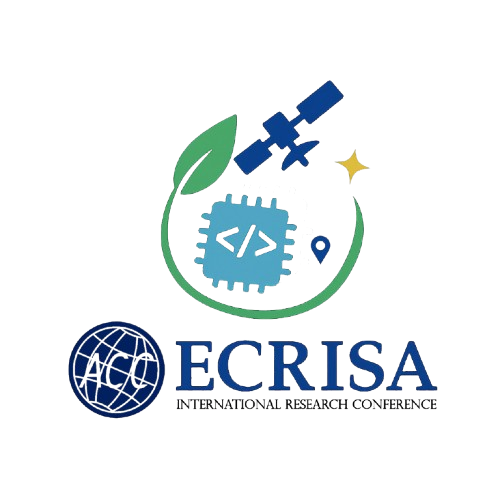Submissions
ECRISA 2026
Submission Guidelines
Authors and practitioners are invited to submit original, unpublished research papers or industry case studies for consideration at ECRISA 2026. The conference welcomes contributions from both academic and industry professionals that advance sustainable development, innovation, and applied practices. All submissions must be prepared in camera-ready format using the templates provided below and submitted exclusively through the CMT submission system.
Important Note: Researchers and authors are interested in publishing their work with ‘Springer Nature’ must ensure that their full papers are submitted via the official submission system. Please follow the provided guidelines and deadlines to ensure that your paper is considered for publication.
Tracks for Submission
Templates
Industry and full papers must not exceed 5 and 15 pages respectively.
If you wish to publish your extended abstract only in the ECRISA Conference Proceedings, please submit a manuscript of 3–5 pages (excluding references). If you wish to submit to Springer, please prepare a full paper of 10–15 pages using either this template or the official Springer template. Camera ready copy of the selected full papers for publishing in ‘Springer Nature’ are expected in accordance with Springer’s formatting guidelines.
Authors can download the required templates using the following links:
Please note:
The latest ECRISA 2026 paper template was uploaded on 08th September 2025. Authors are kindly requested to download and use this version for their submissions.
Authors who have already prepared or submitted their papers using the earlier template will not be disadvantaged.
Formatting will not be strictly reviewed at the submission stage. Final formatting checks will only apply to the camera-ready copy after acceptance
You must also complete the Author Declaration Form and attach it along with your paper submission.
Paper Submission
- All papers must be submitted via the CMT submission portal.
- Submissions sent via email or any other medium will not be accepted.
- All submissions will undergo a double blinded peer-review process conducted by an international panel of experts. Reviewer feedback will be communicated to the authors.
- Guidelines for Generative AI Usage.
- The developments in generative artificial intelligence (AI) tools, with for example also the large language models (LLMs), are transforming the way publications are produced. We encourage the use of those emerging technologies in a responsible manner. We aim that such AI tools mostly promote researchers’ own capacity to create high-quality scientific work. For instance, AI tools can help researchers arrive at new ideas and improve self-written texts, especially for non-native speakers of English. However, we need to consider that AI tools also raise questions about what exactly constitutes their responsible use.
- The developments in generative artificial intelligence (AI) tools, with for example also the large language models (LLMs), are transforming the way publications are produced. We encourage the use of those emerging technologies in a responsible manner. We aim that such AI tools mostly promote researchers’ own capacity to create high-quality scientific work. For instance, AI tools can help researchers arrive at new ideas and improve self-written texts, especially for non-native speakers of English. However, we need to consider that AI tools also raise questions about what exactly constitutes their responsible use.
Review Procedure
All submitted papers will be evaluated through a double-blind peer review, ensuring that both author and reviewer identities remain anonymous. Authors must carefully prepare their manuscripts to preserve anonymity while clearly referencing relevant prior work, including their own. Submissions that do not comply with this policy will be rejected without review.
Initial Screening: The Scientific and Technical Advisory Committee will first screen submissions to ensure they align with the conference themes and meet basic quality and ethical standards. Common reasons for rejection at this stage include off-topic content, plagiarism, duplicate or multiple submissions, poor quality, or suspected machine-generated text.
Peer Review: Submissions that pass the screening will be reviewed by at least two qualified experts from the International Technical Committee. Reviewers are qualified subject-matter expertise’s. Papers will be assessed based on originality, technical quality, clarity, relevance, and community interest. Reviewers will provide detailed feedback and recommendations to guide final decisions by the conference chairs.
Submission Instructions
To submit your paper, please follow these steps:
Submit Your Paper Here
IMPORTANT : The submission deadline has been extended to 15 October 2025.
Need further assistance? Contact :
+94 71 732 7533
( Vajira)
+94 77 962 5759
( Dushani)
ECRISA 2025 Organizing Committee
Note : The Microsoft CMT service was used for managing the peer-reviewing process for this conference. This service was provided for free by Microsoft and they bore all expenses, including costs for Azure cloud services as well as for software development and support.

